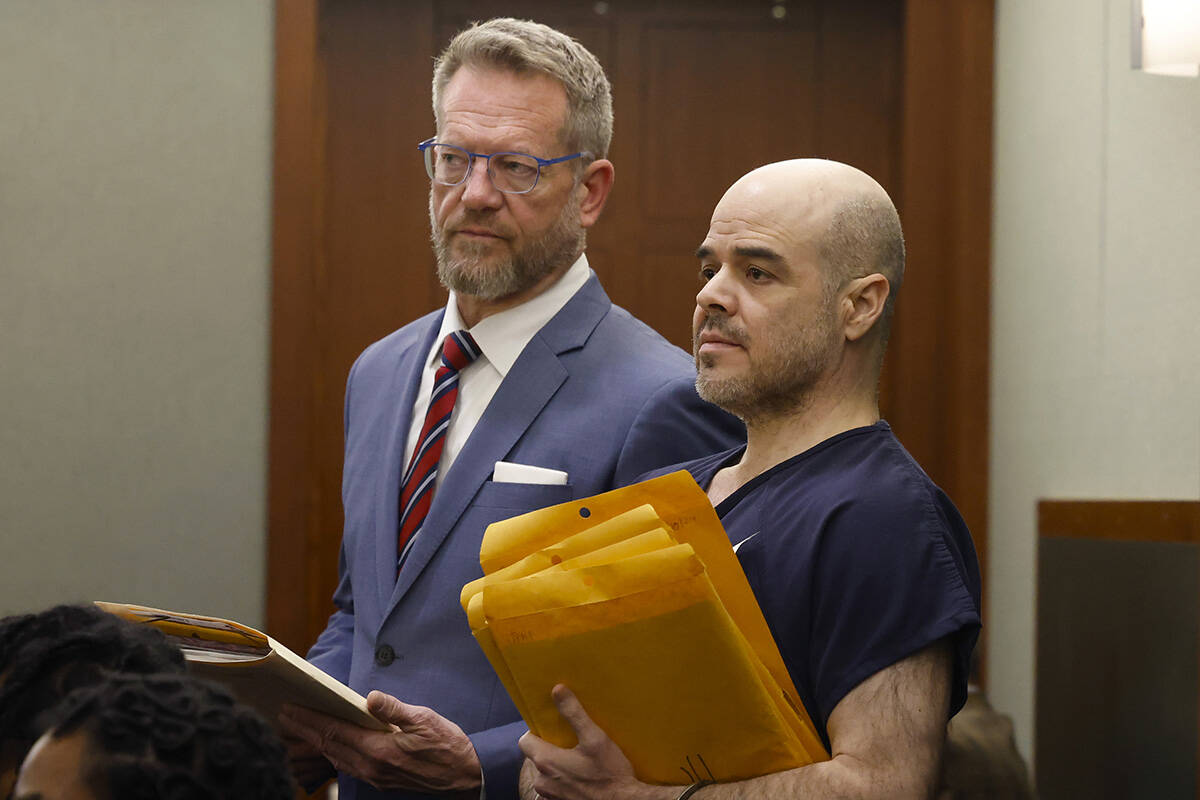Metro spent more than $75K on case over slain RJ reporter’s devices
The Metropolitan Police Department spent more than $75,000 on outside counsel in its unsuccessful bid to review slain Las Vegas Review-Journal investigative reporter Jeff German’s phone, hard drive and computers, which contain the reporter’s confidential source information.
After the longtime investigative reporter was fatally stabbed outside his home in September 2022, Metro detectives seized six of his electronic devices from the crime scene and his home as part of the homicide investigation.
Robert Telles, a low-level elected official whom German had written about in the months before he was killed, was arrested and charged with German’s killing. Police and prosecutors contend that Telles’ motive was related to the articles German had written, but Telles has pleaded not guilty and says he was framed.
The Review-Journal has since fought to prevent law enforcement from searching the devices because they contain information about German’s confidential sources — including police officers and prosecutors — as well as ongoing stories the reporter was researching.
Keeping those confidential sources and information secret is vitally important, said the Review-Journal’s chief legal officer, Benjamin Lipman, as the negative consequences to both the newsgathering process and the lives of the sources are “potentially devastating.”
It’s also important that the subject matter of the newspaper’s investigations remain secret until they are published, he said.
Expensive legal battle
In an ongoing legal battle that hasn’t been fully resolved, Metro paid $76,900 to law firm Marquis Aurbach from September 2022 to January 2024, according to invoices obtained by the Review-Journal.
The Nevada Supreme Court ruled that Nevada’s shield law, which protects journalists from forcibly disclosing sources, continues to apply after a reporter’s death.
Justices ruled in October that the law protected German’s devices and agreed with the Review-Journal that no one but the Review-Journal or a third-party special master approved by the newspaper could search German’s devices to determine what was privileged journalistic materials and what would be relevant to the criminal case.
In December, however, Metro decided to forgo the special master and give the devices to the Review-Journal for the newspaper to search for privileged materials.
The newspaper will identify those items, and if either the state, Police Department or Telles believes any of the identified items should be turned over to Telles as part of his defense, a judge will make the final call. However, either side could appeal the judge’s ruling if they felt it violated legal protections.
In a Wednesday status hearing, the Review-Journal estimated it would take about six months to complete a review of German’s devices but will start with his cellphone. Telles could ask to delay his trial, scheduled for March, until the review is complete.
German’s case is not the only First Amendment battle for which Metro paid outside legal counsel. Since 2017 the Police Department has paid approximately $490,000 to fight public records requests in court, according to invoices obtained by the Review-Journal.
Tax money spent
Lipman said governments often waste taxpayers’ money fighting the public’s right to government documents. In this case, it’s the right of news gatherers to keep information privileged.
“It’s a shame this fight has had to be so long and so costly, though regardless of costs we will continue to stand up for the rights of a free press,” he said.
The police and prosecutors, however, contend that the Review-Journal is responsible for wasting taxpayer dollars and for causing the lengthy litigation, they wrote in a joint statement. The statement said the newspaper took a “scorched-earth approach” and submitted unnecessary court filings.
“In sum, it is LVRJ who has unnecessarily compounded these proceedings, adding layers of extra legal work that have never been fruitful,” the statement said.
On one hand, the reporter’s privilege is an important function in protecting the freedom of the press, which protects democracy, the statement said. On the other hand, the devices were not seized from the newspaper but rather from the victim of a “brutal homicide,” according to the statement.
The Nevada Supreme Court rejected those arguments.
It is the state’s responsibility to make sure all exculpatory material is provided to Telles, and the failure to do that could result in Telles receiving a new trial if he is convicted of German’s murder, prosecutors and police wrote.
Telles previously decided to waive a review of the devices but, with a new attorney, he will decide whether to go forward without them.
Contact Jessica Hill at jehill@reviewjournal.com. Follow @jess_hillyeah on X.




























